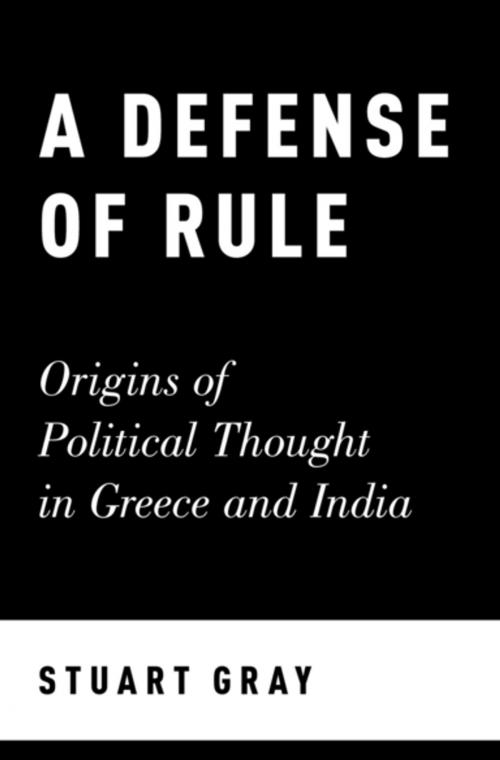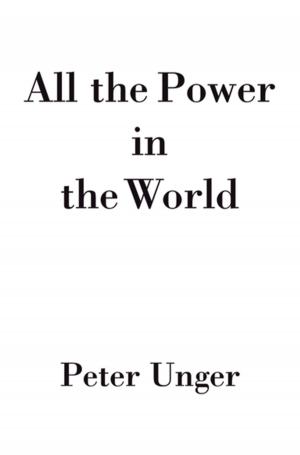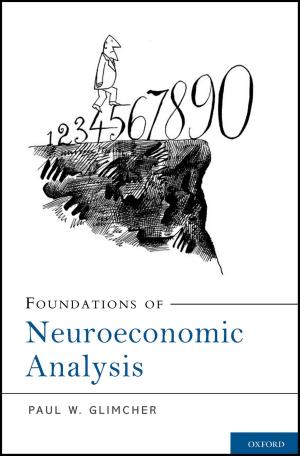A Defense of Rule
Origins of Political Thought in Greece and India
Nonfiction, Social & Cultural Studies, Political Science, Politics, Practical Politics, History & Theory| Author: | Stuart Gray | ISBN: | 9780190670245 |
| Publisher: | Oxford University Press | Publication: | March 1, 2017 |
| Imprint: | Oxford University Press | Language: | English |
| Author: | Stuart Gray |
| ISBN: | 9780190670245 |
| Publisher: | Oxford University Press |
| Publication: | March 1, 2017 |
| Imprint: | Oxford University Press |
| Language: | English |
At its core, politics is all about relations of rule. Accordingly one of the central preoccupations of political theory is what it means for human beings to rule over one another or share in a process of ruling. While political theorists tend to regard rule as a necessary evil, this book aims to explain how rule need not be understood as anathema to political life. Rather, by looking at some of the earliest traditions of political thought we can rethink rule in ways that evoke stewardship rather than domination. Stuart Gray argues that hierarchical ideas about rule coevolved with political divisions between the human and non-human in western theory. The earliest discernible Greek thought advanced an instrumental relationship between humans and their environment, a position that has persisted into our current age. While this seems a defensible position, Gray points out that such instrumental understandings of the nonhuman world have gotten us into serious trouble, including problems of deforestation, global warming, rising sea levels, species loss, and peak oil. To rethink the concept of rule, A Defense of Rule turns to early Indian political thought that suggests that rule is a relationship predicated on stewardship. The book compares these two traditions of thought in order to suggest that we have a normative duty to the environment, and thus to act in a way that takes the interests of non-human nature into account. Basing his argument on his own original translations of primary sources in ancient Greek and Sanskrit, Gray shows when and how early concepts of rule evolved to justify divisions between the human and nonhuman. In doing so, he argues for a reconsideration of our duties toward the nonhuman natural world.
At its core, politics is all about relations of rule. Accordingly one of the central preoccupations of political theory is what it means for human beings to rule over one another or share in a process of ruling. While political theorists tend to regard rule as a necessary evil, this book aims to explain how rule need not be understood as anathema to political life. Rather, by looking at some of the earliest traditions of political thought we can rethink rule in ways that evoke stewardship rather than domination. Stuart Gray argues that hierarchical ideas about rule coevolved with political divisions between the human and non-human in western theory. The earliest discernible Greek thought advanced an instrumental relationship between humans and their environment, a position that has persisted into our current age. While this seems a defensible position, Gray points out that such instrumental understandings of the nonhuman world have gotten us into serious trouble, including problems of deforestation, global warming, rising sea levels, species loss, and peak oil. To rethink the concept of rule, A Defense of Rule turns to early Indian political thought that suggests that rule is a relationship predicated on stewardship. The book compares these two traditions of thought in order to suggest that we have a normative duty to the environment, and thus to act in a way that takes the interests of non-human nature into account. Basing his argument on his own original translations of primary sources in ancient Greek and Sanskrit, Gray shows when and how early concepts of rule evolved to justify divisions between the human and nonhuman. In doing so, he argues for a reconsideration of our duties toward the nonhuman natural world.















